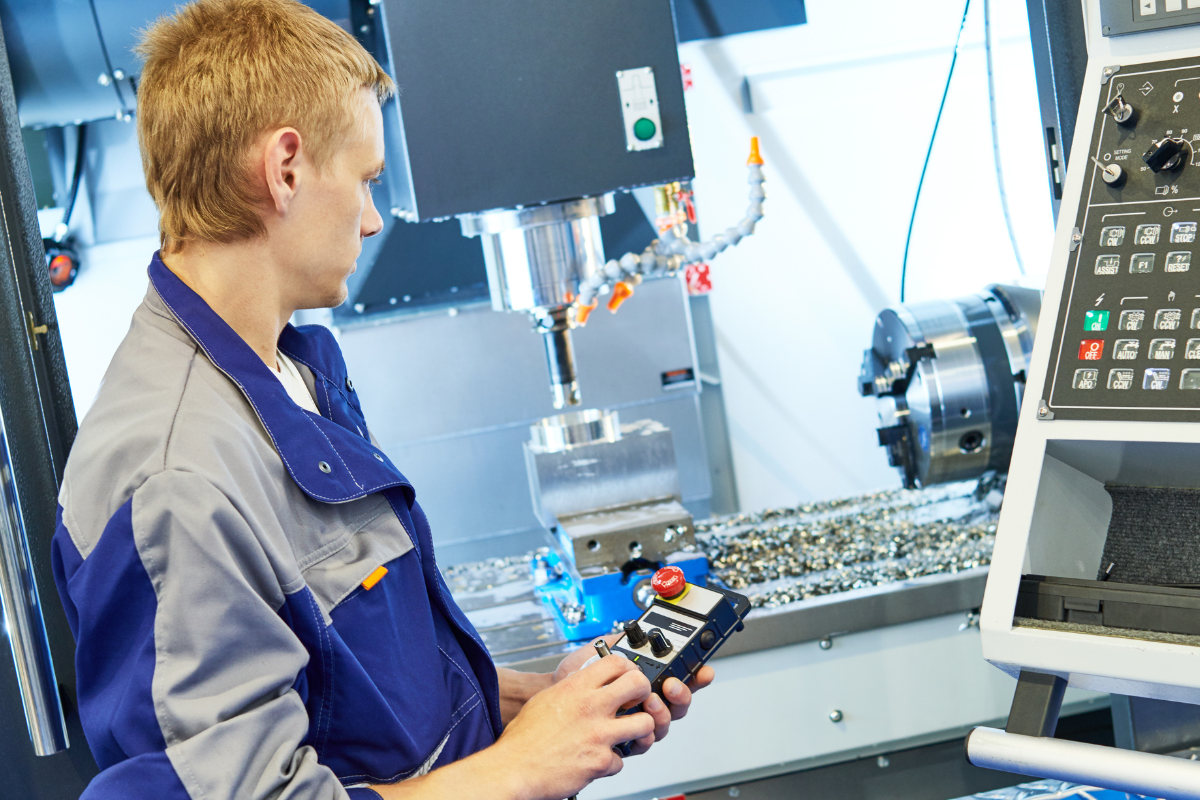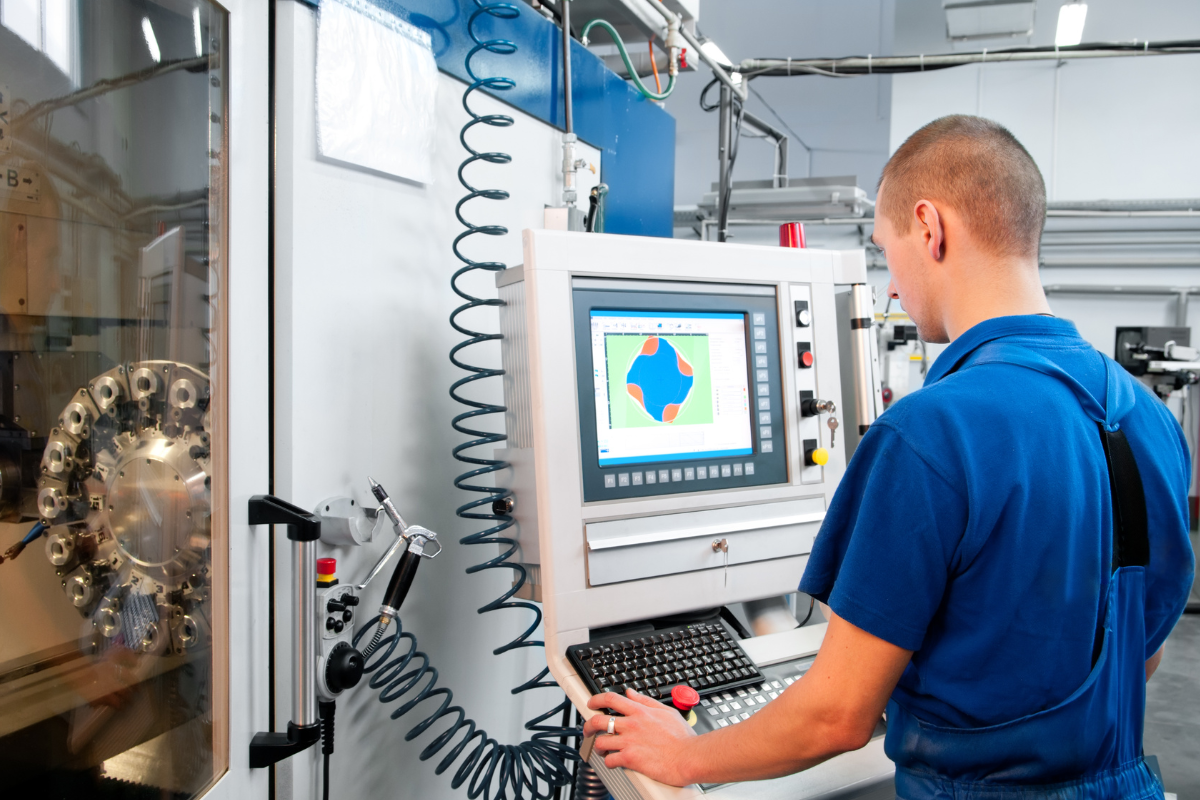In the intricate world of production, accuracy and precision aren’t just desired—they’re imperative. CNC (Computer Numerical Control) machining has heralded a new era, introducing transformative methodologies that enable the creation of highly detailed and exact components.
But as with any industry, the quality spectrum in CNC machining is broad. To extract optimal value, one needs to fully understand Quality Assurance (QA) and its various facets.
Why Quality Assurance Matters In CNC Machining
At its core, quality assurance in CNC machining is the synthesis of practices that guarantees precision, reliability, and unwavering consistency in manufacturing.
When businesses engage with a CNC machining service, they’re essentially forging a partnership based on trust.
The expectation is clear: the final components should meet or ideally, surpass the predefined specifications. But trust, in this high-stakes game, isn’t given—it’s earned, and robust QA protocols are the currency.
Essential Elements Of QA in CNC Machining
Material Verification
Every masterpiece starts with a canvas, and in the world of CNC machining, the material is that canvas. Material selection isn’t just about compatibility; it’s about optimization.

Top-tier machining services prioritize this initial step, recognizing that the best outcomes are born from superior inputs.
Beyond mere selection, it’s the verification of material properties—like hardness, tensile strength, and chemical composition—that sets the stage for success.
By partnering with certified material suppliers, machining services embed an additional layer of quality and reliability into the process.
Precision Machining Tolerances
CNC machining’s allure is its promise of unmatched precision. Tolerances, often confined to the realm of micrometres or thousandths of an inch, dictate the fidelity of the final product to its blueprint.
In CNC machining, precision isn’t an aspirational goal—it’s an operational requirement. Certain sectors, notably aerospace and medical devices, mandate such precision, understanding that even the minutest deviation can compromise functionality.
These tight tolerances are achieved through an aggregate of cutting-edge technology, fantastically calibrated machines, and professional operators.
Advanced software controls every component of the machining method, making sure that every cut and motion adheres to the desired tolerances. Moreover, meticulous inspection and high-quality control strategies are in place to affirm compliance at each degree.
This unwavering commitment to precision makes CNC machining the preferred choice for industries in which accuracy is non-negotiable.
Aerospace components need to be in perfect shape, scientific gadgets should function perfectly, and countless other sectors depend on CNC machining to supply merchandise with the utmost precision.
Measurement Techniques and Instruments
Modern problems require modern solutions. As the designs get more intricate, the tools to measure them evolve in tandem. Traditional instruments like micrometers and callipers remain foundational.
Yet, it’s the integration of advanced measurement techniques—like laser scanning—that truly elevates the QA process, allowing for an even more detailed inspection of complex geometries.
Machine Calibration
Machinery, regardless of its sophistication, is prone to wear and tear. Regular maintenance is a given, but the art of calibration is what fine-tunes a machine to perfection.
Calibration isn’t a one-off activity; it’s an ongoing commitment to excellence. Each calibration cycle refines machine parameters, ensuring a consistent output that aligns with the rigorous tolerances of CNC machining.

Operator Proficiency
Behind every great machine is an even greater operator. The machinery might be the body, but the operator is the soul.
Mastery in CNC programming, tool selection, and machinery operation minimizes the margin for error, ensuring each component is crafted to perfection. Investing in continual training and certification ensures that operators aren’t just following protocols—they’re enhancing them.
Advanced Inspection Methods
Quality assurance is iterative, evolving with technological advancements. Coordinate Measuring Machines (CMM) have emerged as pivotal tools, especially when intricate geometries are at play.
3D scanning systems, meanwhile, bring speed to the equation, capturing a plethora of data points in mere moments. However, rapidity never compensates for accuracy. Ensuring these systems are calibrated and operated by seasoned experts is critical to their efficacy.
The Weight of External Certifications and Standards
Quality isn’t just an internal mandate; it’s an industry-wide expectation. By aligning with internationally recognized certifications like ISO 9001 and AS9100, CNC machining services don’t just showcase their competence—they benchmark against global best practices.
And as industries diversify, specialized certifications like ISO 13485 for medical devices or IATF 16949 for automotive suppliers become testament to a service’s adaptability and expertise.
In Conclusion
Quality assurance in CNC machining is the gold standard for precision production. Through rigorous checks, advanced technologies, continuous learning, and unwavering commitment, CNC services strive to transcend client expectations.
The result? Products that aren’t just functional, but are true marvels of engineering—culminating in cost savings, elevated client satisfaction, and enduring professional partnerships.
CNC machining procedures depend on state-of-the-art devices, modern software, and professional technicians who meticulously oversee each step of production.
This determination to precision extends beyond the finished product, encompassing fabric selection, tool calibration, and nice manage exams at each stage.
The synergy of those elements guarantees constant, first-rate additives, fostering belief and self-belief amongst clients. In the ever-evolving panorama of manufacturing, CNC machining remains the pinnacle of accuracy and excellence.